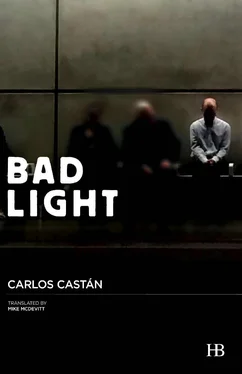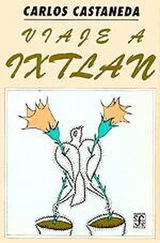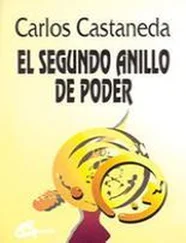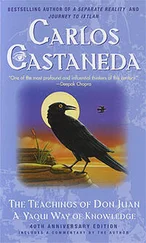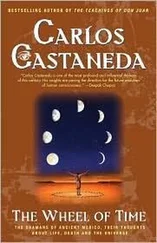Carlos Castán - Bad Light
Здесь есть возможность читать онлайн «Carlos Castán - Bad Light» весь текст электронной книги совершенно бесплатно (целиком полную версию без сокращений). В некоторых случаях можно слушать аудио, скачать через торрент в формате fb2 и присутствует краткое содержание. Год выпуска: 2016, Издательство: Hispabooks, Жанр: Современная проза, на английском языке. Описание произведения, (предисловие) а так же отзывы посетителей доступны на портале библиотеки ЛибКат.
- Название:Bad Light
- Автор:
- Издательство:Hispabooks
- Жанр:
- Год:2016
- ISBN:нет данных
- Рейтинг книги:5 / 5. Голосов: 1
-
Избранное:Добавить в избранное
- Отзывы:
-
Ваша оценка:
- 100
- 1
- 2
- 3
- 4
- 5
Bad Light: краткое содержание, описание и аннотация
Предлагаем к чтению аннотацию, описание, краткое содержание или предисловие (зависит от того, что написал сам автор книги «Bad Light»). Если вы не нашли необходимую информацию о книге — напишите в комментариях, мы постараемся отыскать её.
Carlos Castán
Bad Light
Bad Light — читать онлайн бесплатно полную книгу (весь текст) целиком
Ниже представлен текст книги, разбитый по страницам. Система сохранения места последней прочитанной страницы, позволяет с удобством читать онлайн бесплатно книгу «Bad Light», без необходимости каждый раз заново искать на чём Вы остановились. Поставьте закладку, и сможете в любой момент перейти на страницу, на которой закончили чтение.
Интервал:
Закладка:
Yet it is not unheard of in such circumstances to weigh up the possibility of replacing that sterile agony with something that packs a greater punch. Something weighty, something grand, sublime if possible. It’s only human and is a common occurrence; it’s not unusual for the trick question to emerge unbidden: If the hardest part has already been established — the refusal to carry on with life as we knew it — if we have already said farewell to it all and that goodbye was heartfelt, then why not make the most of that extremely rare, formidable freedom, that impossible detachment that lies out of reach by any other means, to do that which, out of fear, was left undone? The worst failure, death itself, is already a given. In fact, it was half an hour away just moments ago, with all the bottles of pills laid out on the bedside table, as if on display. In such thoughts lie the true and invincible strength of the kamikaze, the courage of the hero who lays down his life, and the fearless energy of he who understands that the new dawn now means nothing to him, that its dirty light is no longer any concern of his, that time now is a vast foreign land, and who takes up residence in borrowed time that leaves him well placed, should he so wish, to bellow with laughter at it all, even that which he most feared, to be without being, to open the floodgates and drain himself of caution and shame in a hemorrhage that takes with it plans and resentments, long-held dreams, dread and pride. Many doors open from here on in, a whole world of possibilities that nevertheless have in common the power of that bitter, untamed freedom, the triumphant detachment of a spirit newly freed from instinct who has just lifted the veil that concealed a heady world. There are less pitiful ways to toy with self-destruction that lying on a bed, valium coming out of your ears: Leaving Las Vegas -style, for example, spending every last dime on the most expensive drinks, surrounded by whores and neon lights; or jotting down in a notebook, like in My Life Without Me , a list of the things that were left undone, little whims and flights of fancy, such as watching the dawn break in such and such a place or contemplating the sunset on the opposite side of the world, breakfasting on champagne and oysters, say, diving in the Caribbean, or running barefoot through the snow under a full moon, whatever. All of which is to suppose that there is any point in doing that which cannot be repeated or remembered, much less told. Pure performance for no one’s eyes, like a poem written on a lost rock in a language mankind has long forgotten.
And then there is the option of being someone else, or at least pretending to be, of emigrating with the shirt on your back to anywhere on the far side of the ocean, to Mexico City, say, where fear roams the streets in green, panic-stricken taxis, at any time and heading who knows where, and everything is wild and speaks the truth. To touch down there one day, to put myself up again in the Hotel Milán , paying for a couple of nights at most to gather strength before setting out to beg on the streets until my heart bursts, collecting cardboard boxes, descending into the depths of hell, filling sheets of paper much like Jean Genet and good old Jean-Paul Clêbert, who, in his tiny, cramped handwriting, on any wrapper at all, even on crumpled cigarettes packs, scribbled down the exploits of the drifter’s life, its wretched poetry, all that naïf drivel about life beneath a star-studded canopy, but also the rush of refusing to contemplate anything other than life as it is lived in the moment, the heart beating now, the dinner and the roll in the hay that very night, the just stolen wine washing down the throat like a blessing, the company at once dangerous and endearing of those who barely question themselves underneath the world’s sewers. Changing continents is about as close as I can imagine coming to her never having been born.
I could perhaps make my way to Zipaquirá, just as I’ve sometimes thought about doing. In that Colombian city, on my return from Vilha de Leiva, in the taxi taking us back to Bogota one Sunday evening, I saw myself. And with such clarity that I had no time to react or ask our driver to pull over a moment to the curb. In the slums of Zipaquirá, in a sort of makeshift roadside bar made from materials like tarpaulin, plywood, and tin, where liquor and bottles of beer were served on the edge of the highway, I spotted myself, utterly weather beaten, unsteady on my feet, clutching a drink in one hand. It was me. And for a moment I saw myself twice over — from my car seat, I saw that outcast with unkempt hair, drinking what might have been mescal by the side of the road, and, from that very same curb and with equal astonishment, I saw my reflection seated inside a taxi bound for the capital, its trunk laden with the bags of longaniza we had just bought in Zutamarchán. I’ve seen myself on other occasions, albeit more hazily and in static images — a snapshot of a group of prisoners in the barracks of Auschwitz taken by the allied soldiers, the camp newly liberated, among the figures in a painting by Ramón Casas — in which, with the passing of time, the likeness has slowly faded. I have never, however, stopped toying with the idea of going back to look for myself in that lost city in the region of Cundinamarca. No one will ever fully convince me that the drunkard in Zipaquirá, who was struck, just as I was, half-dead with astonishment on seeing me drive past, was not me.
But for the most part, such thoughts amount to little more than an excuse, almost always compelling, to tumble from your bed and crawl over to the phone, praying that it’s not too late to have your stomach pumped. The ambulances, the lights, the world hurtling back into view, tearing the black cobwebs to shreds. A niggling doubt will suffice, though we know full well that such globe-trotting plans to embark on part two of our lives, now free from meaning and our former concerns, are little more than a long line of unspent bullets, booby traps, phantasmagorias, pipe dreams that are the product of a mind that refuses to resign itself to mingling with the earth just yet. Out of self-interest and an instinct for survival, the unconscious tends to keep its lips sealed as tight as a whore’s even when it’s as clear as day how such adventures will end, the vengeance-seeking self-sacrifice that strikes us as laughable, if not worse, the following morning, the list in a notebook that will never even be bought, the flights never taken, the planes that take to the air without us on board, just as thousands do every day at every latitude and in every possible direction, a white trail in their wake, slicing across the sky at all hours of the day and bearing our empty seat, touching down beneath rain showers that will never drench us on the outskirts of cities filled with alleyways down which we will never lose our way and women with whom we will never exchange so much as a glance, let alone fluids or promises.
Greatness, true luxury, lies in that somewhat aristocratic disdain, not in the worst sense of the word, of always doing things by halves — the tumbler of brandy left partly undrunk on the terrace of a bar, the coins not fully gathered up from the dish on which the waiter has brought the change from your order, the last bits of sauce not mopped up, whole evenings of drowsiness and complacency, wasted without guilt for there is more than enough life to go around, because there’s plenty of time yet. This is the attitude that stands in contrast to that of the miserable wretch driven by the most visceral and tight-fisted need to see poetry in the idea of draining every last drop of what life has to offer. And so he throws nothing away, and saves for a rainy day, stingily hoarding the leftovers to be polished off later, much as a dog that has had its fill might bury bones next to a tree so as not to let a single ounce of food go to waste, and he dunks every last churro in his order of hot chocolate, no matter that he’s full to bursting, whether or not he has any room left in his belly. It’s a thousand times better to always leave a little something on the plate, to thumb your nose elegantly at part of the banquet, to dine, say, with a ravishing lady and gracefully allow her to escape with her life. And, in that same haughty vein, to abandon life at the midway point, to up and leave, just like that, as one might leave untouched what remains of an ice-cream cone now melted or a saucer bearing loose change.
Читать дальшеИнтервал:
Закладка:
Похожие книги на «Bad Light»
Представляем Вашему вниманию похожие книги на «Bad Light» списком для выбора. Мы отобрали схожую по названию и смыслу литературу в надежде предоставить читателям больше вариантов отыскать новые, интересные, ещё непрочитанные произведения.
Обсуждение, отзывы о книге «Bad Light» и просто собственные мнения читателей. Оставьте ваши комментарии, напишите, что Вы думаете о произведении, его смысле или главных героях. Укажите что конкретно понравилось, а что нет, и почему Вы так считаете.
